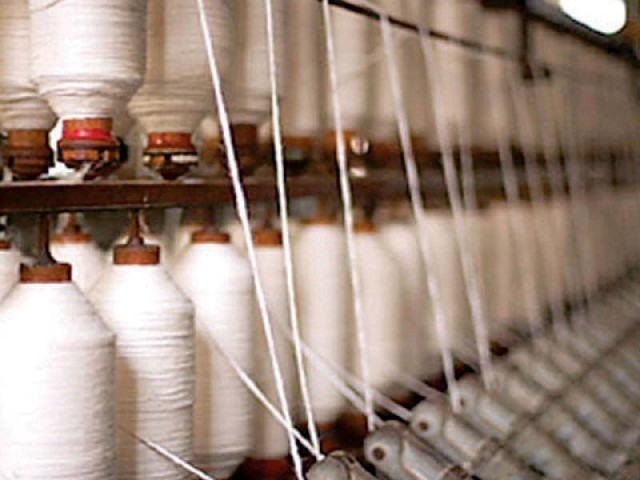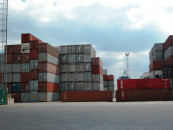Textile firm backs dumping duty
Insists govt should continue collecting duty to discourage dumping of yarn

A textile company listed at Pakistan Stock Exchange (PSX) has demanded that the government continue charging anti-dumping duty (ADD) on import of polyester filament yarn (PFY) for at least five years to discourage the dumping of yarn in the country, mainly by China.
PFY is a raw material for knitting and weaving to make polyestre fabrics like clothes, curtains, bed sheets, ropes, etc.
In its Annual Report 2023, Gatron (Industries) Limited said that ADD levels in Pakistan were low compared to what was imposed by other countries against China.
“However, even at these low levels (in the range of 2.78% to 6.82% or on an average of 4.8%), the continuation of ADD and its effective collection in Pakistan for next five years is essential.”
The outgoing year was a challenging period for the company characterised by a severe politico-economic crisis. Moreover, still “unabated dumped imports of PFY continued despite falling foreign exchange reserves and LC (Letter of Credit) opening difficulties.”
The dumping was mainly due to the Chinese mega expansions over the last two years. It was said that producers in China wanted to start their new capacities and companies to operate above 90% to give a good picture to banks and local governments to allow them to fully draw their loans for completing their expansions, the local company said in the report.
Importers have evaded/ still not paid ADD for much of the previous six years. They get a stay in one high court, which is dismissed in five or six months. Though they cannot file the same petition in another high court once it has been dismissed, they do so by hiding the fact that it has been dismissed earlier and by declaring that this is the first time they are filing petitions against ADD.
“In this way, they have so far filed petitions against the PFY ADD one after the other (for more than 35 times).”
Importers have so far made a mockery of government’s efforts to collect ADD on PFY with over Rs16 billion remaining uncollected. However, the government has restored in December 2022 the 5% regulatory duty on import to counter the impact.
Countries including Turkey, India, the US and Vietnam have imposed ADD in the range of 16-32% on the Chinese PFY. Brazil as well as Mexico have also initiated ADD on PFY from China.
The Chinese export of the yarn, however, has continued to grow notably in the past four years, from 2019 to 2022. Chinese export of the product to Pakistan grew in the range of 13-48% in each of the past year years.
“Now, however, with the Pakistani rupee appreciating, the traders are holding off imports, which will help in reducing the imported inventory in the coming months, helping your company,” said the annual report.
PFY is among the top imports, which should be produced locally, particularly when its raw material PTA is also produced in the country. It should also be kept in mind that in 2003 over 90% of local demand of filament yarn was met by indigenous production, it said.
The company said it had completed phase-II of its PFY expansion plan, enabling it to manufacture 99,000 tons per annum compared to the current capacity of 75,000 tons.
“This accomplishment represents a remarkable three-fold growth compared to our production potential of 33,000 tons for similar mixed denier just six years ago in 2017.”
The company’s net profit declined to Rs205.30 million in FY23 compared to Rs1.83 billion in FY22. Sales surged to Rs27.38 billion compared to Rs23.96 billion.
Published in The Express Tribune, October 18th, 2023.
Like Business on Facebook, follow @TribuneBiz on Twitter to stay informed and join in the conversation.


















COMMENTS
Comments are moderated and generally will be posted if they are on-topic and not abusive.
For more information, please see our Comments FAQ